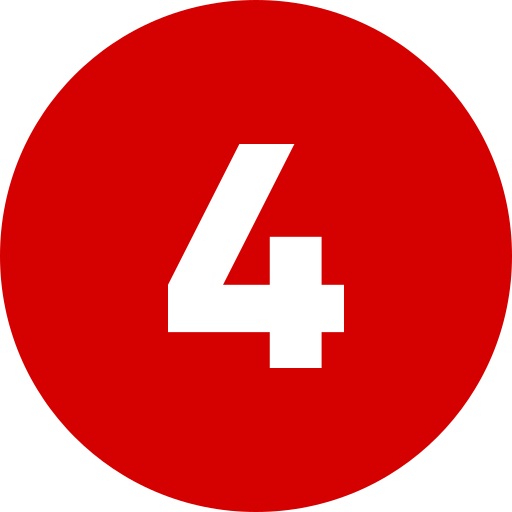Communication Skills Training Program

Master Workplace Communication with Confidence, Clarity, and Credibility
Nowadays, Effective communication in the business world is not only a soft skill, it’s a critical skill. The Communication Skills Training program is an in-depth, engaging two-day workshop designed to strengthen and improve how professionals across industries speak, write, and present more effectively in the workplace.
Regardless of whether you’re collaborating with a team, leading any meeting, or writing emails to anyone, your communication style determines how you’re perceived and the success of your interactions. This communication skills development journey provides participants with the tools and techniques to project professionalism, resolve conflict, and work with multiple stakeholders confidently.
Individual Effectiveness
Get In Touch
About the Program
The Communication Skills Training program moves beyond theory and focuses on the centres of business communication in practice. Attendees are given scenario-based exercises where they practice verbal, non-verbal, and written communication. From decoding and reading body language to learning the etiquette of Business emails, this workshop allows professionals to communicate more effectively in a variety of workplace contexts.
Designed for today’s hybrid and global workplace, this program is perfect for employees across functions looking to improve workplace relationships, enhance clarity in their message, and build credibility through every interaction.
This highly experiential professional communication training is conducted by expert facilitators with deep corporate experience and is reinforced with post-workshop assignments to promote real-world implementation.
Learning Goals
By the end of the program, the participants will:
- Learn different workplace communication styles and adapt accordingly.
- Build stronger interpersonal communication with better perception management.
- Handle workplace conversations and conflicts with professionalism and poise.
- Enhance business writing skills for email clarity and structure.
- Apply verbal and non-verbal communication to convey ideas with influence.
- Enhance follow-up communication and response effectiveness in both internal and external environments.
Whether you’re an individual contributor or an emerging team leader, these communication skills will improve how you engage, influence, and lead.
Key Takeaways

Communicate confidently with colleagues, clients, and cross-functional teams

Understand different workplace communication styles and adapt accordingly

Project professionalism through both verbal and written communication

Navigate difficult conversations with clarity and empathy

Improve business email writing—tone, structure, and purpose

Leverage body language for impactful in-person and virtual communication

Respond effectively and follow up for greater task alignment

Present ideas clearly with precision and persuasion

Build stronger relationships through active listening and thoughtful responses

Strengthen your brand with refined communication skills
Pre-Work (To Be Completed Before the Workshop)
In order to maintain high contextual appropriateness, participants must undertake the following:
- Self-Assessment: A brief questionnaire to determine personal strengths and areas for improvement in communication skills.
- Real-Life Reflection: Watch and Observe 2–3 communication scenarios (e.g., emails, meetings) and assess their effectiveness.
- Email Submission: Bring a sample email (with sensitive data redacted) to analyse writing style and effectiveness.
This pre-work primes learners for a more immersive and customized communication skills training experience.
Post-Workshop Activities
To support long-term retention and application of communication skills, participants will complete:
- Scenario-Based Email Writing: Submit a professionally written email based on a given workplace scenario.
- Real-Time Application: Use at least one learned technique in a real meeting or communication exchange.
- Reflection Exercise: Share a short reflection on how your communication has changed post-training.
These exercises help cement your learning and promote continuous communication skills development.
Workshop Experience: What to Expect
The Communication Skills Training program is delivered over two highly interactive and experiential days. Each session is designed to help participants internalise key principles through:
Role-plays and real-world simulations
Group discussions and peer feedback
Email writing practice and personalised reviews
Body language and tone exercises
Pitching and presenting activities
The flow of the workshop centred on critical factors of communication skills development, such as business etiquette, conflict resolution, effective writing, and stakeholder adaptability. By the end of Day 2, participants are well prepared to communicate more clearly, confidently, and professionally.
Learning Formats
To cater to diverse learner schedules, the Communication Skills Training program is available in:
- In-Person Format: 2-Day Workshop at client site or training location
- Virtual Format: 2 Half-Day Live Online Sessions
- Blended Format: 1 Day In-Person + Virtual Post-Support
Custom rollout options are available for enterprise-wide communication skills training initiatives

Core Beneficiaries of the Program
The Communication Skills Training program is ideal for professionals across functions who want to enhance how they interact, influence, and lead in the workplace. This program is particularly beneficial for:
- Early to Mid-Level Professionals
- First-Time and Emerging Managers
- Client-Facing Roles (Sales, Customer Support, Operations)
- Cross-Functional Project Teams
- HR & L&D Professionals
Whether you’re improving internal collaboration or strengthening your external presence, this communication skills training empowers every participant to speak with clarity, act with empathy, and write with precision.
FAQs
This is a hands-on, business-relevant communication skills training program that addresses real workplace challenges, not just theoretical models. It balances verbal, non-verbal, and written communication for professional impact.
The content is designed to be cross-functional and cross-industry. We incorporate participant examples and case discussions relevant to their sectors, making it widely applicable.
We have virtual formats that cater to distributed teams without compromising the quality of the communication skills development experience.
While not mandatory, participants can opt to receive a digital certificate of participation upon completing the post-workshop assignments.
Yes. We can align the workshop with organisational goals and communication challenges, incorporating internal tools, tone guidelines, or leadership communication models.
